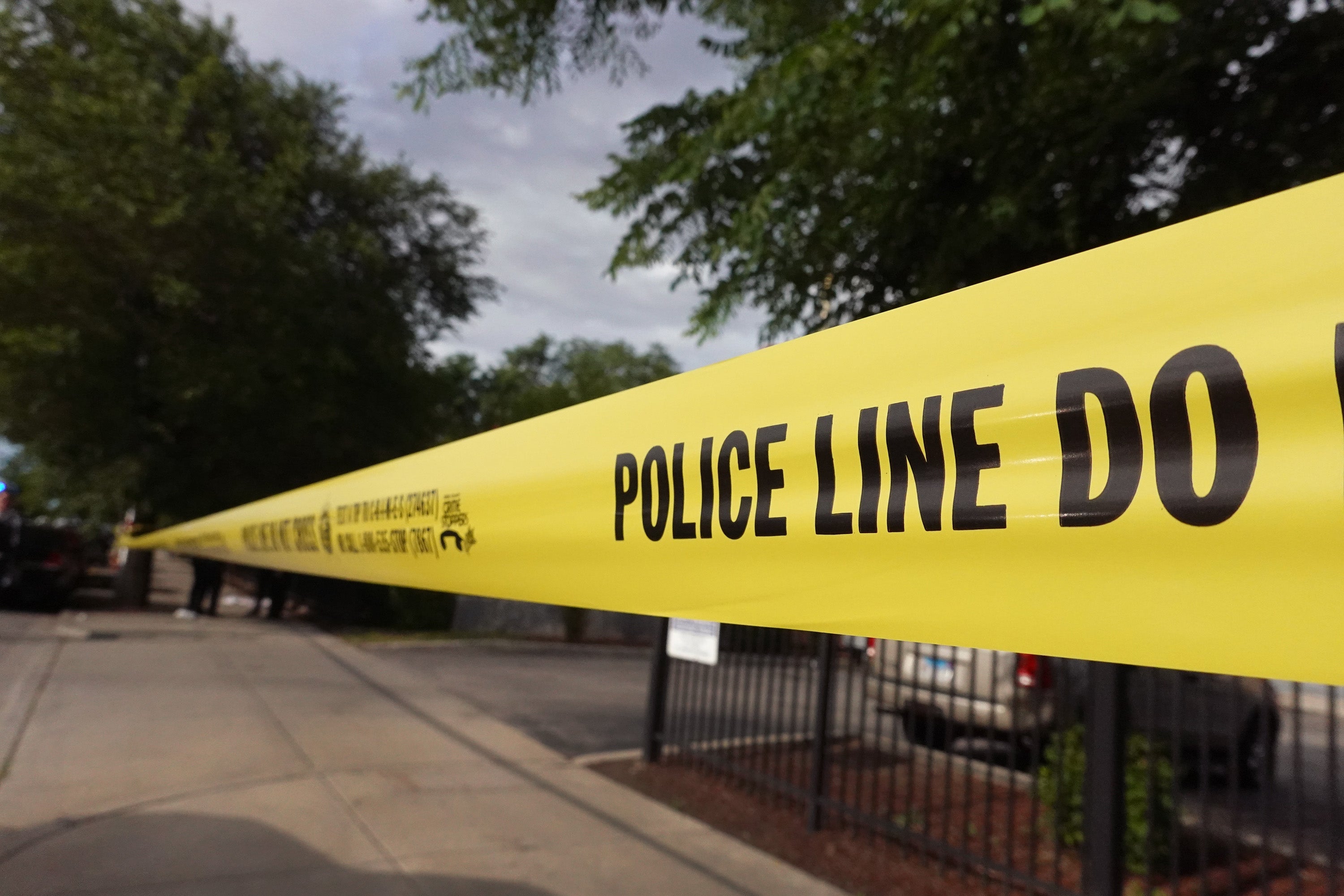Chicago police pointed guns at two young girls after breaking down their door without a warrant, lawsuit says
The police raid left the young sisters with ‘lasting psychological trauma’, lawsuit says

Your support helps us to tell the story
From reproductive rights to climate change to Big Tech, The Independent is on the ground when the story is developing. Whether it's investigating the financials of Elon Musk's pro-Trump PAC or producing our latest documentary, 'The A Word', which shines a light on the American women fighting for reproductive rights, we know how important it is to parse out the facts from the messaging.
At such a critical moment in US history, we need reporters on the ground. Your donation allows us to keep sending journalists to speak to both sides of the story.
The Independent is trusted by Americans across the entire political spectrum. And unlike many other quality news outlets, we choose not to lock Americans out of our reporting and analysis with paywalls. We believe quality journalism should be available to everyone, paid for by those who can afford it.
Your support makes all the difference.Well after their bedtime on 7 August, 2019, four-year-old Reshyla Winters and her nine-year-old sister, Savayla, woke to the sudden sound of Chicago police kicking in the apartment door, guns drawn.
“Get down on the . . . floor!” an officer shouted, using an obscenity, according to a federal lawsuit filed on Wednesday by the Winters family.
An officer shoved the girls’ father, Steven Winters, to the floor and held him there with a knee against his back and a gun to his head, the lawsuit says. Another officer armed with a shotgun swooped into the sisters’ shared bedroom and shined a flashlight into their eyes, the suit alleges.
A third policeman stormed the bedroom where their 73-year-old grandfather, Jessie Evans, was sleeping and pointed a gun at the elderly man.
The officers had entered the Winters’ home without a warrant and without announcing themselves because they “recklessly believed that a vaguely described suspect with a gun” had entered their apartment building and hidden inside the family’s unit, according to the lawsuit.
“The officers were completely wrong,” the family’s lawyer, Al Hofeld Jr, said in a news release announcing the federal civil rights suit. “Officers did not find any sign that any suspect had entered. They did not find a gun. Officers did not arrest anyone.”
The Chicago Police Department did not immediately return a request for comment from The Washington Post regarding the allegations in the suit.
But a spokesman told CBS Chicago in a statement that the agency is “committed to treating all individuals with dignity and respect”.
“This incident occurred three months prior to the implementation of the Department’s Firearm Pointing Incidents directive,” spokesman Don Terry told the station.
“The apprehension of fleeing suspects are often active and fluid situations in which officers are balancing public safety and the safety of all individuals involved. At all times, officers are expected to conduct themselves in accordance with the law and Department policy.”
In police reports recounting the allegedly botched search of the Winters’ apartment, officers claimed they saw the mystery suspect run out the back door, the lawsuit says. According to the lawsuit, body-camera footage showed no evidence of a fleeing suspect near the Winters’ home.
The police raid left the young sisters with “lasting psychological trauma” resulting in nightmares, trouble sleeping, decreased appetite, crying fits, and fear and distrust of police, Hofeld said in the statement.
The civil rights lawyer said Wednesday that the Winters’ experience is just the latest example of Chicago police exhibiting a “pattern and practice of pointing guns at children.” Hofeld said he has filed 11 cases involving 32 children of color “traumatized by CPD pointing guns at them in illegal entries into their homes.”
Several high-profile raids have spurred increased scrutiny of the Chicago police in recent years, including the case of Anjanette Young, who in February 2019 was handcuffed for 30 minutes while naked inside her home after police mistakenly busted down her door. The city tried to block the release of body-camera footage that showed how police officers ignored her assertions that they had come to the wrong address.
“How dare they want to continue to hide this,” Young told The Washington Post in December, when the footage was finally released.
In another case in November 2017, police allegedly flashed guns at 9-year-old Peter Mendez and his brother after entering the wrong apartment while trying to execute a warrant on one of his neighbors.
“It was like my life just flashed before my eyes,” Mendez told CBS Chicago.
Hofeld said he also represented the family of three-year-old Davianna Simmons, who watched as police allegedly pointed guns at her and destroyed her toys in August 2013 while mistakenly executing a warrant that had no connection to her family. The city of Chicago settled a civil rights suit over that incident for $2.5 million in 2018.
The Washington Post
Join our commenting forum
Join thought-provoking conversations, follow other Independent readers and see their replies
Comments